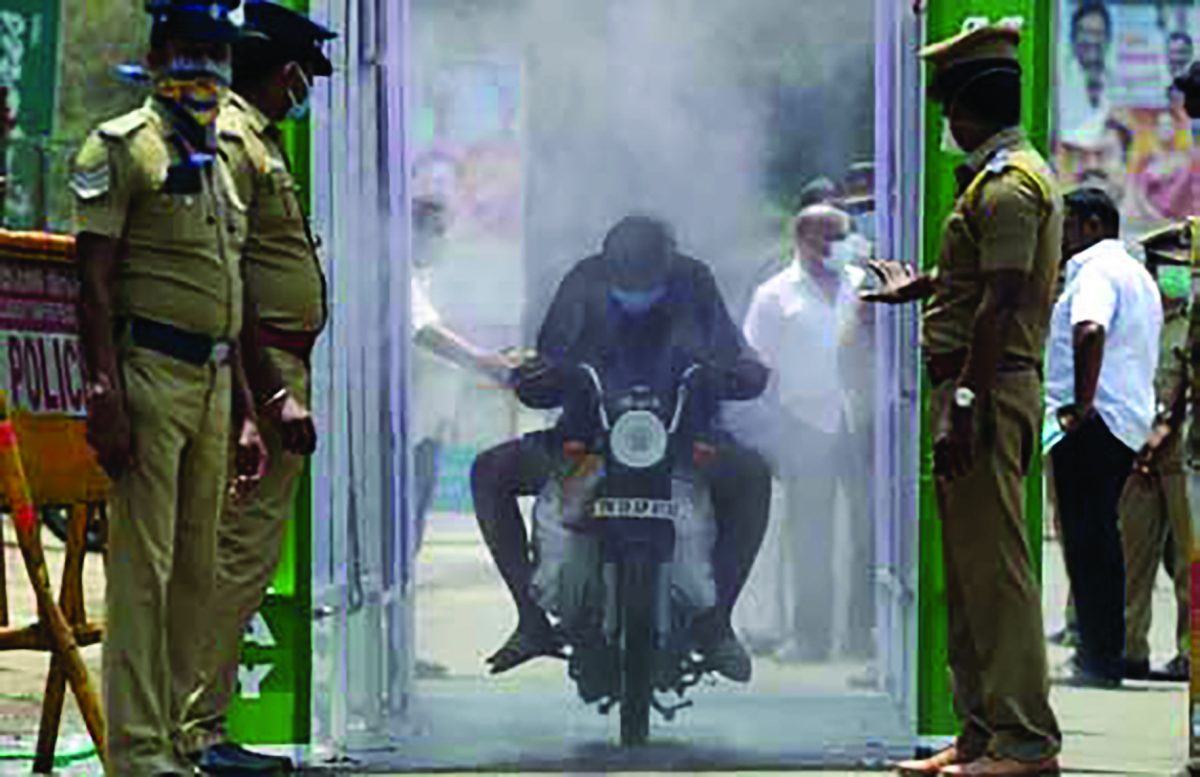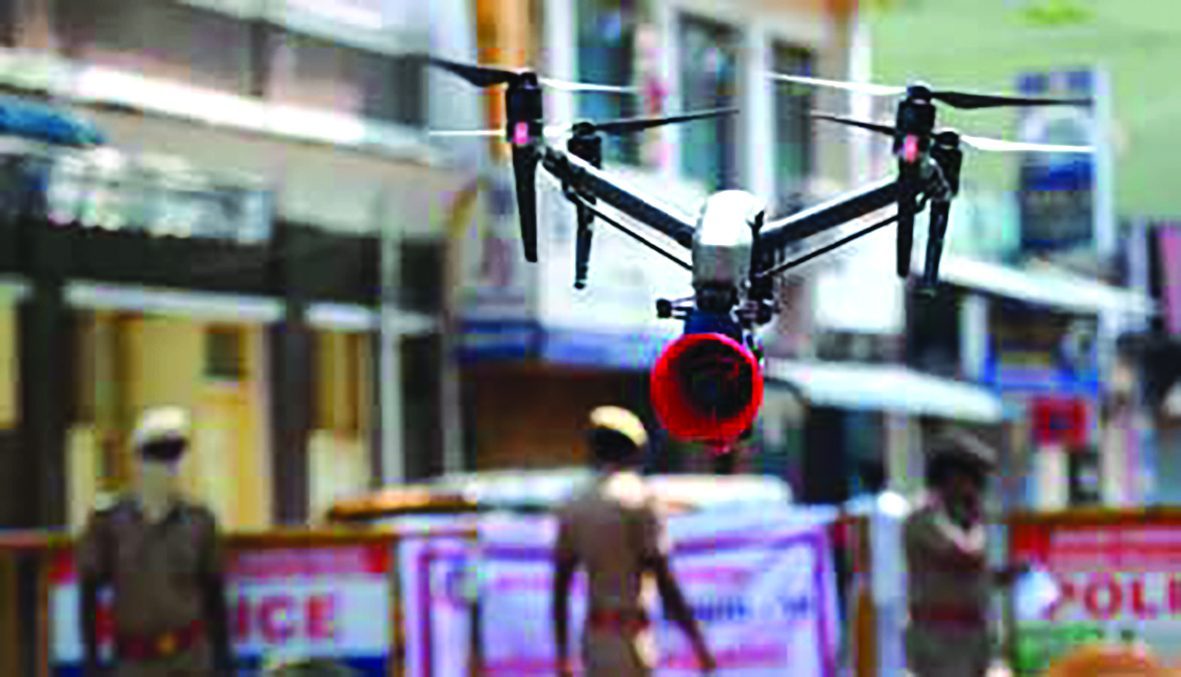As the world scrambles to fight the CO VID-19 pandemic, Indian scientists and researchers are coming together to offer unique solutions. It is also seeing a rise in private-government partnerships

The Government of India’s citizen engagement platform MyGov is suddenly buzzing with action. It is inviting citizens to participate in a challenge to find solutions to stop the spread of the Novel Coronavirus or COVID-19 and aid its treatment. “Participate and win INR 1 lakh” says the banner on the site. This is just one of the many steps the government of India is taking to encourage indigenous scientific solutions to fight the deadly disease.
Given the recent advances towards producing high-quality goods within the country and the widespread success of the Make in India initiative, the manufacturing sector in the country shows immense potential and promise; be it through the public or private partnerships. India’s history is filled with events where the country’s diverse mix of entities has come together to present a united front whenever the nation has faced a crises. It seems another chapter is being written today as we fight the global pandemic.
“The work place is getting Digital First. And, why not? It is technology that demolishes bureaucratic hierarchies, eliminates middlemen and accelerates welfare measures”, Narendra Modi Indian PM
Being prepared
Several ministries across the government went into action at war footing, to ensure that the country was prepared to tackle a critical situation of such magnitude. The private sector also joined the fight against the rapidly spreading disease with many companies, regardless of their size, voluntarily proposing interventions.
A major step was the identification of areas of concern with regard to the spread of COVID-19. As the world’s second-highest populated country, it was also imperative to prepare for a large number of cases which would require specialised equipment for protection and treatment like N95 masks, protective gear and most of all, ventilators.
Appropriate response
On March 20, the Department of Science and Technology (DST), had invited India’s rapidly evolving industrial and start-up ecosystem for support with regard to developing technologically innovative solutions towards fighting COVID-19. An astounding 300 companies responded favorably to the call with almost 140 formal proposals being submitted to the TDB (Technology Development Board), a government entity that provides financial support to Indian companies for commercialisation of indigenous technology or adaptation of imported technology. The initial responses that were received offered an innovative approach towards manufacturing diagnostic kits aimed at minimizing the time taken to receive results. Others included proposals for vaccine development, thermal screening equipment, large-scale production of PPE (personal protective equipment) as well as innovative solutions using Information Technology for monitoring of essential supplies in quarantine zones etc.
It is important to note that with the diverse entities in India’s corporate and business ecosystem, it is necessary that we move towards combating COVID-19 with renewed vigour. “Every step taken in this direction will have a multiplier effect,” says Professor Ashutosh Sharma, Secretary, DST.

Challenge accepted
At its most lethal stages, the Coronavirus is known to impact the lungs drastically reducing pulmonary capabilities, at this stage ventilators are a must if the condition is to be treated. One of the first areas identified for development was the production of ventilators to manage treatment of infected individuals. Several large-scale organisation across the country have risen to the occasion forming associations that transcend industrial differences. An apt example is of auto industry heavyweight, Maruti-Suzuki India’s tie-up with a New Delhi-based ventilator manufacturer, AgVa Healthcare. The joint venture is aimed towards dramatically ramping up the manufacture of the highly specialised machine to 10,000 pieces a month from the existing capacity of 400 units per month. The venture, facilitated by Invest India has been aided by BHEL (Bharat Heavy Electricals Limited) with the supply of electrical components. Similarly, another industrial giant, Mahindra & Mahindra, has teamed up with SkanRay (international healthcare technology company), BHEL and Bharat Electronics Ltd (BEL) to manufacture a modified version of the ventilator, which would be best suited for current requirements and would be easy to transport. Infact, Anand Mahindra (Chairman) and Pawan Goenka (MD) of Mahindra & Mahindra, had even tweeted videos of these prototypes mentioning that the aim was to bring down costs to INR 7,500. The company, has also moved to start production of a lowcost indigenously developed sanitisers that would be available for as low as INR 400/litre.
That not all, state-run organisations such as the DRDO (Defence Research and Development Organisation) are also partnering up with local entrepreneurs and small-scale manufacturing units to produce N95 masks on a mass scale. Another venture with BEL, the state-run electronic giant, production of ventilators has also been established. Several prestigious companies like JCB India, Hyundai Motors and Tata Motors are soon expected to join the massive efforts aimed towards tackling the global pandemic.
Many technology start-ups in the field of robotics have also joined the fight by providing innovative solutions to problems revolving around critical healthcare

Breathing easy
The current efforts, by government agencies along with the much needed push from the private sector are aimed to boost production of such critical equipment. For example, companies producing ventilators had a joint capacity of about 5,500 units every month, are poised to increase production to almost 50,000 units each month through partnership ventures. Testing kits and PPE, apart from being imported in large numbers are being produced indigenously as well. Meanwhile, several staterun and private organisations have come forward with donations and contributions to national funds that are fuelling the fight against the spread and treatment of the Coronavirus. The brightest minds from top-educational institutions across India have volunteered to join the race to make critical healthcare widely available at affordable prices.
Members of the Indian diaspora across the world have also pitched in with inputs to manage production and solve manufacturing woes for many start-ups that are now preparing to battle one of the largest challenges the nation has ever faced. Several committees set up to monitor and combat the spread of COVID-19 under the Disaster Management Act, along with cooperation across the private sector have surely adhered to the words of visionary Sardar Patel “Little pools of water tend to become stagnant and useless, but if they are joined together to form a big lake the atmosphere is cooled and there is universal benefit.”